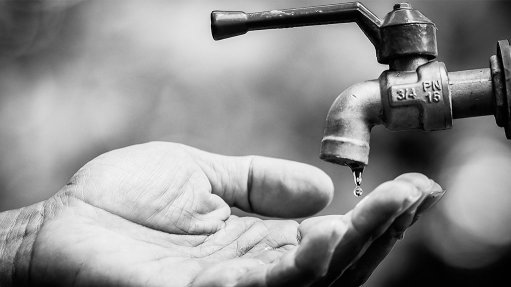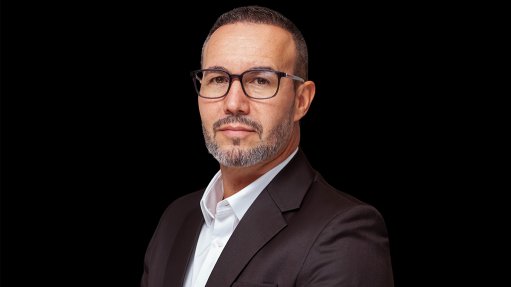Upcoming elections a test for Kenya’s new Constitution
Plus ça change, plus c’est la même chose – the more things change, the more they stay the same – comes to mind when casting a casual eye over Kenya’s August Presidential and Parliamentary elections. Since the end of the one-party State in 1991, Kenyan elections have served to rotate power between the entrenched members of Kenya’s ruling political and economic elite, which every few years battles it out in what appears to be a numbers game of coalitions between allied regional and ethnic groupings.
This time, voters will be called on to replace Uhuru Kenyatta, son of the country’s first post-independence President, Jomo Kenyatta, with one of two frontrunning candidates with a similar history. Raila Odinga is the son of Oginga Odinga, Jomo Kenyatta’s first Vice-President and veteran opposition leader, while William Ruto learned his political trade as a youth leader at the feet of the country’s second President, Daniel arap Moi.
Orchestrated violence and electoral manipulation are never far in Kenyan polls. After the December 2007 elections, some 1 000 people were murdered and over 350 000 internally displaced. Both Uhuru Kenyatta and Ruto were named in International Criminal Court (ICC) proceedings for their alleged involvement. The ICC’s cases against both men were subsequently dropped. Similarly, in 2017, Kenya’s Supreme Court cancelled Kenyatta’s win – based on opposition allegations that hackers had inserted an algorithm into the Independent Electoral and Boundaries Commission’s new system to ensure a Kenyatta victory. This, after the electoral commission’s information technology director was found murdered, with apparent signs of torture.
The stakes in Kenya’s elections are high, as are political tensions, but a new Constitution constrains behaviour and excesses for the first time. The Constitution – which 67% of Kenyans approved in a referendum in 2010 – was designed as an antidote to the 2007 to 2008 election violence. Although the Constitution is now 12 years old, elections are still largely uncharted territory. Since its enactment, the judiciary, police, electoral commission and ethics commission have all been flexing their newfound powers.
The 2010 Constitution places limitations on the political elite in ways to which they are unaccustomed. As I write, the ethics commission, for example, has been removing candidates without an academic degree – and some presenting fake degrees! That the elite is feeling the constraints is clear, with both key coalition candidates having said implicitly and explicitly that they intend to change the Constitution. Crucially, for the first time, the President is limited to two terms – Kenyatta has to step down.
According to veteran prodemocracy and anticorruption campaigner John Githongo, what’s also new are the three D’s: democracy, demography and debt. We are where Sri Lanka was nine months ago, he says. Kenyatta restructured the economy – most productivity comes out of high levels of public spending – financed by eurobonds or debt held by Chinese banks. With a splurge on infrastructure spending, Kenya’s debt portfolio has ballooned from $2-billion to current levels of $90-billion, consuming 70% of revenue. Although growth is reported at 11%, inflation is 5% to 6%. East Africa is facing its fourth year of drought and the election risk factor has unsettled investors. The Kenyan currency has lost 35% of its value. According to some, Kenya is now considered among the countries likely to default on their debt.
Added to this are the social consequences of Covid-19, the inflationary impact of Russia’s aggression against Ukraine, and deeper inequality. This has had a particularly negative impact on Kenya’s burgeoning youth – the country’s median age is 20. As elsewhere, poor economic conditions leave the youth open to populist messaging or to opt out altogether from a political system that never seems to change.
Ruto is running a highly populist campaign, presenting himself as the bootstrap politician – the rags to riches story – running against Odinga, whom he portrays as a member of the establishment, the political elite. It’s a populist trope the world has seen played out in the US and the UK, and most recently in France. Ruto is young and energetic, renowned for his sobriety, focus, hard work, ambition – and ruthlessness. While few of the 20- something voters remember what he is alleged to have done in the wake of the 2007 vote, the prospect of a Ruto Presidency has seen several long-term investors move assets offshore. One claimed Ruto would be like Moi – whose rule was notoriously corrupt and brutal – “on steroids”.
Meanwhile, at 77, Odinga is the old man of Kenyan politics. Nevertheless, he is an experienced politician and a master coalition builder. He has managed to garner the-anyone-but-Ruto vote and is inching ahead in polls – a trend which, if it carries through to election day, spells trouble, including violence.
This election will be a test for Kenya’s new Constitution and its long-term adherence to democracy. Pre-election messaging from the Ruto camp is that the Constitution cannot keep a two-term Presidential limit and that to make a difference, a President must be in power for 20 years!
Article Enquiry
Email Article
Save Article
Feedback
To advertise email advertising@creamermedia.co.za or click here
Announcements
What's On
Subscribe to improve your user experience...
Option 1 (equivalent of R125 a month):
Receive a weekly copy of Creamer Media's Engineering News & Mining Weekly magazine
(print copy for those in South Africa and e-magazine for those outside of South Africa)
Receive daily email newsletters
Access to full search results
Access archive of magazine back copies
Access to Projects in Progress
Access to ONE Research Report of your choice in PDF format
Option 2 (equivalent of R375 a month):
All benefits from Option 1
PLUS
Access to Creamer Media's Research Channel Africa for ALL Research Reports, in PDF format, on various industrial and mining sectors
including Electricity; Water; Energy Transition; Hydrogen; Roads, Rail and Ports; Coal; Gold; Platinum; Battery Metals; etc.
Already a subscriber?
Forgotten your password?
Receive weekly copy of Creamer Media's Engineering News & Mining Weekly magazine (print copy for those in South Africa and e-magazine for those outside of South Africa)
➕
Recieve daily email newsletters
➕
Access to full search results
➕
Access archive of magazine back copies
➕
Access to Projects in Progress
➕
Access to ONE Research Report of your choice in PDF format
RESEARCH CHANNEL AFRICA
R4500 (equivalent of R375 a month)
SUBSCRIBEAll benefits from Option 1
➕
Access to Creamer Media's Research Channel Africa for ALL Research Reports on various industrial and mining sectors, in PDF format, including on:
Electricity
➕
Water
➕
Energy Transition
➕
Hydrogen
➕
Roads, Rail and Ports
➕
Coal
➕
Gold
➕
Platinum
➕
Battery Metals
➕
etc.
Receive all benefits from Option 1 or Option 2 delivered to numerous people at your company
➕
Multiple User names and Passwords for simultaneous log-ins
➕
Intranet integration access to all in your organisation


















